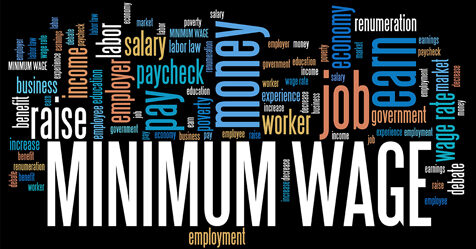Safer Choice Label Threatened as Trump Plans EPA Cuts
A coalition of businesses and organizations representing a broad swath of the economy, including ISSA, the American Sustainable Business Network (ASBN), the Household & Commercial Products Association (HCPA), Change Chemistry, the American Cleaning Institute, the Interfaith Center for Corporate Responsibility (ICCR), and the Alternative Fuels & Chemicals Coalition (AFCC), have come together to express their united support for the U.S. Environmental Protection Agency’s (EPA) Safer Choice program.
“ISSA has long been a strong supporter of the EPA’s Safer Choice program,” said Meché C. Ragland, ISSA Regulatory Affairs Manager. “We recognize the program’s value in driving innovation, promoting safer chemistry, and empowering consumers and businesses to make informed choices. We are proud to stand alongside our industry partners in advocating for the continued strength and effectiveness of this important initiative.”
This voluntary program, which labels cleaning products meeting stringent safety and environmental standards, is seen by businesses as a vital tool for communicating product safety to consumers.
“The Safer Choice label is a beacon of trust for consumers and has been for the last decade,” said David Levine, American Sustainable Business Network co-founder and president. “It signifies that a product has undergone rigorous scrutiny by the EPA and meets high standards for human and environmental health. Privatizing this program would jeopardize its integrity and open the door for greenwashing. We have been defending EPA’s Design For the Environment (DFE) and subsequent Safer Choice programs since 2014, and will continue to lead this effort.”
Plans to transition the Safer Choice program to the private sector proposed by Project 2025, have sparked concerns among businesses that the program’s credibility and effectiveness could be undermined. The business community’s support for the program is evident in a coalition letter signed by over 200 businesses, investors ,and organizations, including ASBN members Ecos, Seventh Generation, and Naturepedic.
“We are proud to stand by the EPA’s historic foresight in building up this incredibly impactful program that sets American products apart from competitors, and we are ready to defend the Safer Choice program,” said Barry Cik, Naturepedic founder and technical director. “This program is a nonpartisan win-win for businesses and consumers, and we urge the EPA to maintain its commitment to protecting human and environmental health through this vital initiative.”
The coalition letter highlights the Safer Choice program’s numerous benefits, including its role in incentivizing product innovation; promoting safer chemistry; complementing federal, state, and retailer efforts to enhance product safety; and providing businesses with an efficient and effective way to communicate with consumers. The coalition is calling on the EPA to maintain the program’s integrity and ensure its continued success.
“EPA’s Safer Choice program has been incredibly beneficial for both American consumers and businesses,” said Kelly Vlahakis-Hanks, ECOS president and CEO. “This nonpartisan program is critical for reducing toxins in homes and workplaces across the U.S., and it gives American manufacturers like ECOS the opportunity to compete globally with this powerful certification program.”

